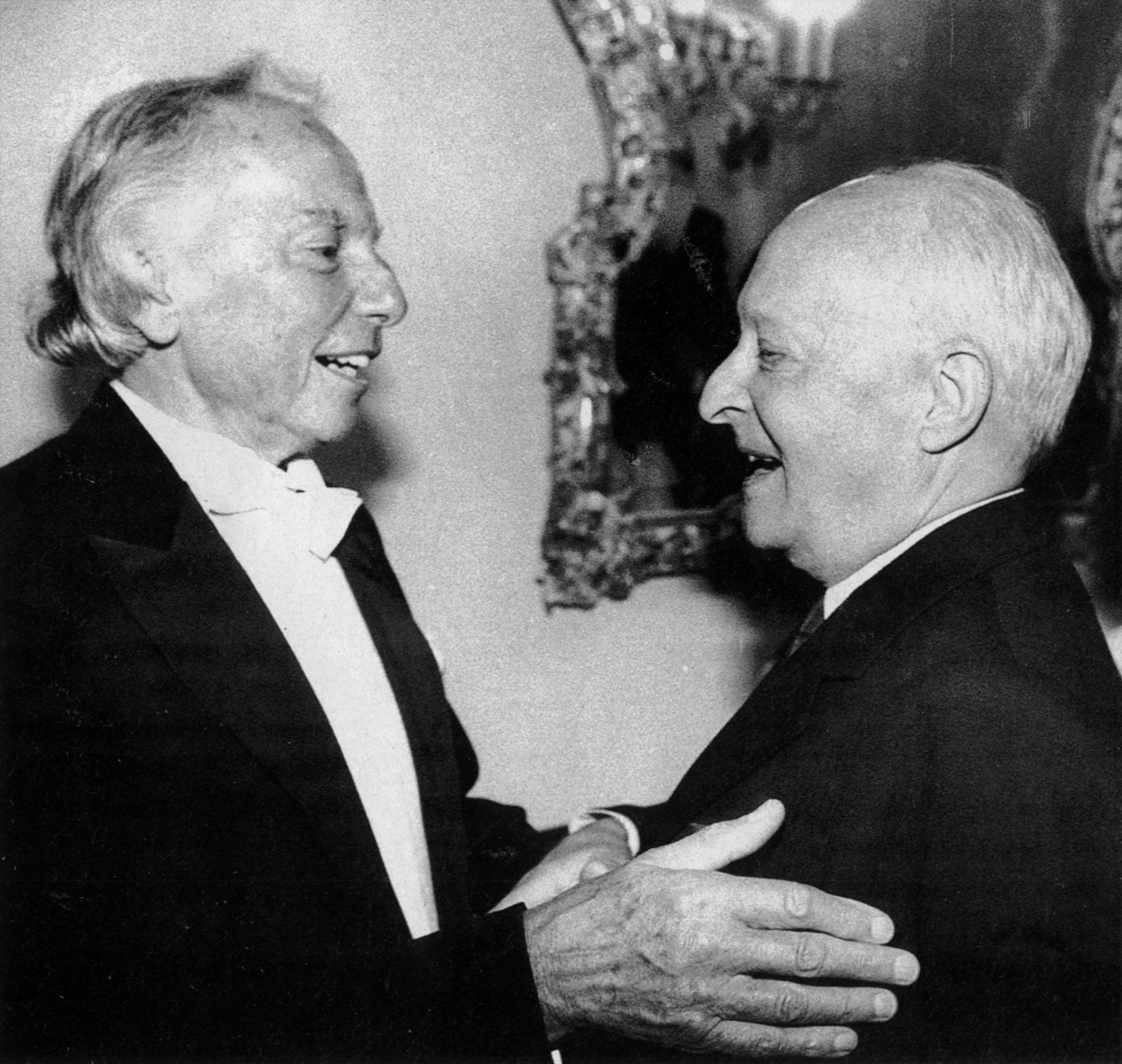|
Formalism (music)
In music theory and especially in the branch of study called the aesthetics of music, formalism is the concept that a composition's meaning is entirely determined by its form. Aesthetic theory Leonard B. Meyer, in ''Emotion and Meaning in Music'' (1956), distinguished ''"formalists"'' from what he called ''"expressionists"'': "...formalists would contend that the meaning of music lies in the perception and understanding of the musical relationships set forth in the work of art and that meaning in music is primarily intellectual, while the expressionist would argue that these same relationships are in some sense capable of exciting feelings and emotions in the listener" (Meyer 1956, p. 3). (The term "expressionism" is also used to define a '' musical genre'' typified by the early works of Schoenberg. The two terms are not necessarily related.) Meyer applied the term formalist (p. 3) to Eduard Hanslick who, in his later years, championed the music of Brahms over that ... [...More Info...] [...Related Items...] OR: [Wikipedia] [Google] [Baidu] |
Music Theory
Music theory is the study of the practices and possibilities of music. ''The Oxford Companion to Music'' describes three interrelated uses of the term "music theory". The first is the "rudiments", that are needed to understand music notation (key signatures, time signatures, and rhythmic notation); the second is learning scholars' views on music from antiquity to the present; the third is a sub-topic of musicology that "seeks to define processes and general principles in music". The musicological approach to theory differs from music analysis "in that it takes as its starting-point not the individual work or performance but the fundamental materials from which it is built." Music theory is frequently concerned with describing how musicians and composers make music, including tuning systems and composition methods among other topics. Because of the ever-expanding conception of what constitutes music, a more inclusive definition could be the consideration of any sonic phenomena, ... [...More Info...] [...Related Items...] OR: [Wikipedia] [Google] [Baidu] |
Charles Eliot Norton Lectures
The Charles Eliot Norton Professorship of Poetry at Harvard University was established in 1925 as an annual lectureship in "poetry in the broadest sense" and named for the university's former professor of fine arts. Distinguished creative figures and scholars in the arts, including painting, architecture, and music deliver customarily six lectures. The lectures are usually dated by the academic year in which they are given, though sometimes by just the calendar year. Many but not all of the Norton Lectures have subsequently been published by the Harvard University Press. The following table lists all the published lecture series, with academic year given and year of publication, together with unpublished lectures as are known. Titles under which the lectures were published are not necessarily titles under which they were given. Charles Eliot Norton Lectures The post had no incumbent in years omitted. External linksArticle from Harvard Gazette naming 2006 lecturer (date later ... [...More Info...] [...Related Items...] OR: [Wikipedia] [Google] [Baidu] |
Witold Lutosławski
Witold Roman Lutosławski (; 25 January 1913 – 7 February 1994) was a Polish composer and conductor. Among the major composers of 20th-century classical music, he is "generally regarded as the most significant Polish composer since Szymanowski, and possibly the greatest Polish composer since Chopin". His compositions—of which he was a notable conductor—include representatives of most traditional genres, aside from opera: symphonies, concertos, orchestral song cycles, other orchestral works, and chamber works. Among his best known works are his four symphonies, the Variations on a Theme by Paganini (1941), the Concerto for Orchestra (1954), and his cello concerto (1970). During his youth, Lutosławski studied piano and composition in Warsaw. His early works were influenced by Polish folk music and demonstrated a wide range of rich atmospheric textures. His folk-inspired music includes the Concerto for Orchestra (1954)—which first brought him international renown ... [...More Info...] [...Related Items...] OR: [Wikipedia] [Google] [Baidu] |

